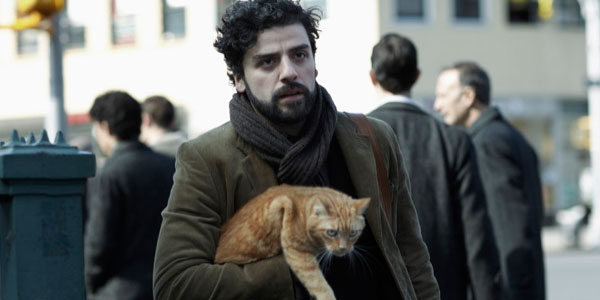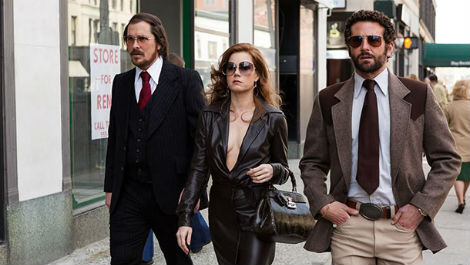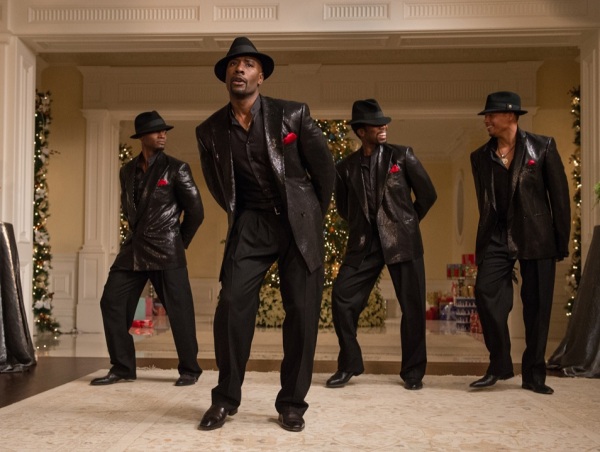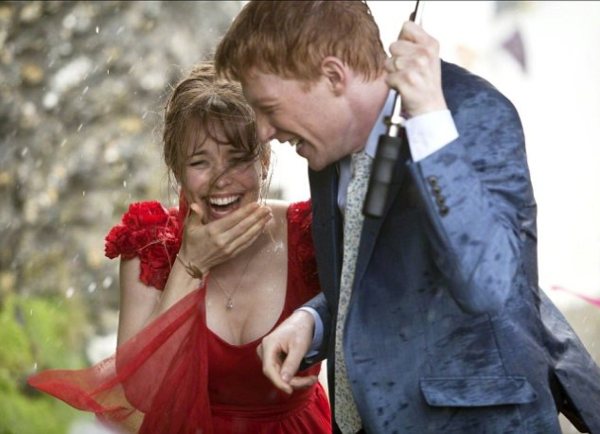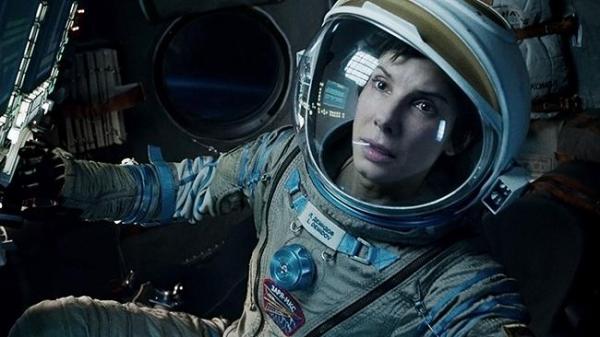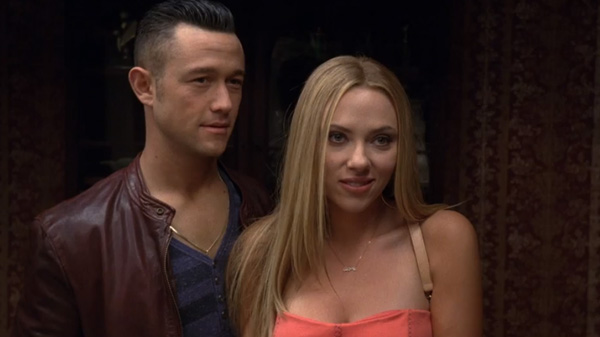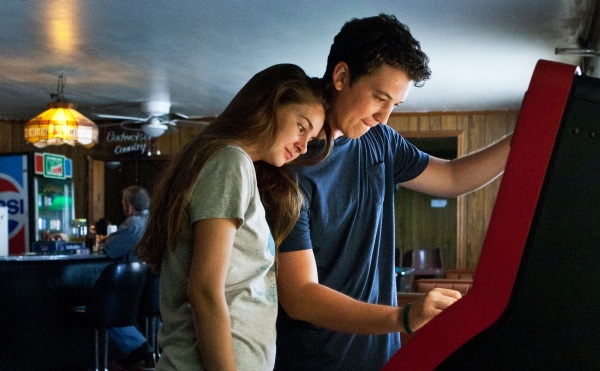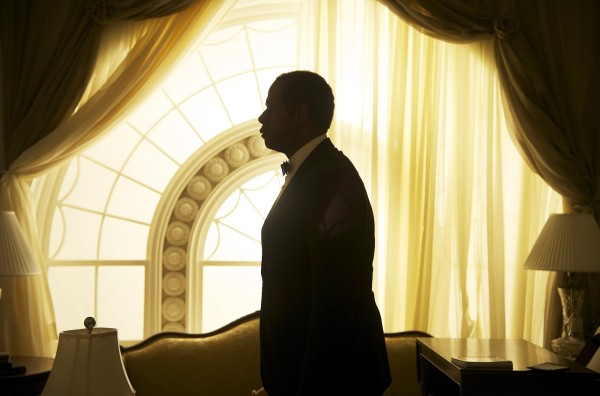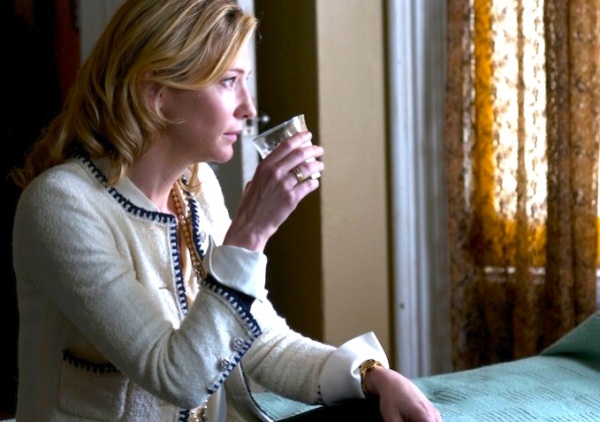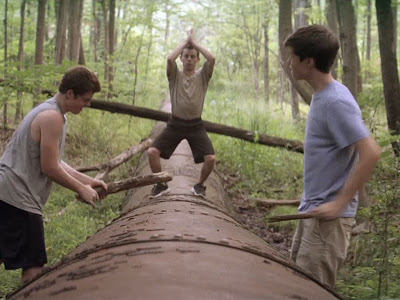“I’m a dick,” Llewyn Davis mockingly shouts at his sister, but he really is. Davis (Oscar Isaac) is a struggling folk singer, yet he heckles other performers and openly rolls his eyes at the vanilla folk his friends sing. Speaking of those friends, he’s knocked up his friend Jean (a feisty Carey Mulligan) even though she’s married to his good friend Jim (a clean cut Justin Timberlake). Yet he has to rely on these friends for a place to sleep and couch surfs (before it was even a thing) across all of New York City’s five boroughs. It’s no wonder he’s singing songs with lyrics like, “Hang me oh hang me, and I’ll be dead and gone. I wouldn’t mind the hangin’, just laying in the grave so long.”
The problem is Davis is actually a good folksinger. He imbues a pain and raw passion in well worn folk songs. And even when we want to smack Davis over the head with his own guitar, it’s that beautiful voice and tender emotion that make us feel for him. This is mostly thanks to Isaac’s vulnerable performance that makes us understand his frustration without ever pitying him. And directors Joel and Ethan Coen aren’t asking us to like him or even root for him; they know he’s a failure, and that’s the point.
“Inside Llewyn Davis” doesn’t really have a plot, but it’s a meditation on what the struggle for success feels like. It’s the bleak gray winter weather hanging over the film, which is half a psychological device and half proof that the Coen Brothers grew up in Midwestern winters. It’s the irony that the only people who appreciate your music — plush liberal academics — are exactly the people who don’t understand what it means to you. 1960s folk music is changing as fast Greenwich Village is. Like the beleaguered Larry Gopnik in the Coens’ “A Serious Man,” Davis is in a Job-esque struggle he’ll never win.
It’s this struggle that lends the film a surreal quality. Davis accidentally befriends and repeatedly loses a frisky orange tabby throughout the film. This fateful feline seems to appear just when Davis is on the verge of a existential breakdown, the one constant in his life. The oddest of these breakdowns is during a nightmarish road trip to Chicago, where he shares the car with a laconic, surly beatnik (ironically Garrett Hedlund, who also played Dean Moriarty in “On the Road”) and a belligerent old jazz playing junkie (a slightly over the top John Goodman.) The two men seem to represent Davis’ two fates — washed-up jerk or the fool — neither of which he can accept.
The film begins and culminates with Davis getting the crap beaten out of him behind the alley of a folk club, which puts the entire chronology of the film into question. Was the whole thing a flashback, a flashforward or just evidence of his Sisyphean struggle? It’s a question the Coens don’t answer for you, and that’s a relief in a season of films that beat you over the head with their excess, metaphors, messages and performances. “Inside Llewyn Davis” is a film you’ll be thinking about for days and playing its lovely soundtrack for weeks.
